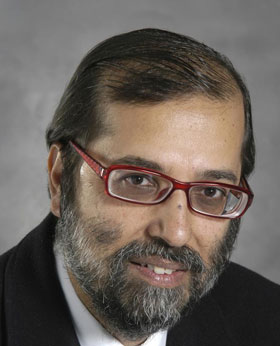
President Jacob Zuma has assented to amendments to two key laws that affect South Africa’s information and communications technology industry, approving changes that could have long-lasting effects on competition in the sector and the way in which universal service funds are managed.
Zuma has approved the Electronic Communications Amendment Act and the Icasa Amendment Act, paving the way for communications minister Yunus Carrim to publish a notice in the Government Gazette bringing them into force.
Among other things, the amended Electronic Communications Act makes provisions to try to ensure more effective competition in the sector; expands the discounted “e-rate” offered to schools to other facilities, including public health establishments and higher education institutions; and strengthens the rules meant to address the persistent problems at the Universal Service & Access Agency of South Africa (Usaasa).
A first reading of the amendments suggests one of the most significant changes is that the minister of communications, in consultation with cabinet colleagues and communications regulator Icasa, must develop a policy and policy directions for the rapid deployment of telecommunications networks.
Operators have long complained that it takes too long to deploy new infrastructure, such as fibre optics, because of the need to obtain approvals from a multitude of government authorities, including municipalities, which often have different rules in place.
Once the minister has issued the policy and related directions, which he must do within 12 months of the Electronic Communications Amendment Act coming into force, Icasa must draw up procedures and processes for operators looking to obtain permits and other approvals as well as rules for resolving disputes between licensees and landowners “in order to satisfy the public interest in the rapid roll-out” of networks.
Industry players will be disappointed to learn that the amendment act makes no provision for the trading of radio frequency spectrum.
Instead, it says spectrum licences may not be assigned, ceded or in any way transferred to anyone else without Icasa’s written permission.
The new act also makes a number of changes meant to make the sector more competitive, allowing Icasa to intervene more aggressively.
For example, terms for licensees may include penalties for failure to abide by procompetitive licence conditions; obligations to maintain separate accounting for any services specified by Icasa; obligations to maintain structural separation for the provision of any services specified; wholesale and retail price regulation for specific services; and obligations concerning the amount and type of premium, sports and South African programming for broadcasting.
In a move that is likely to prove controversial, the amendment act also expands the e-rate, whereby Internet services must be provided at a minimum discounted rate of 50% to schools, to cover all public and private colleges, all public health establishments, all public and private further education and training institutions, and all public and private higher education institutions.

Under the new law, Icasa may prescribe additional terms and conditions in respect of universal service and access obligations on licensees.
A significant portion of the amendment act deals with strengthening Usaasa, which has been plagued by corruption and leadership crises for years. Usaasa collects revenue from licensed telecoms operators and broadcasters for investment in underserviced parts of the country.
Last month, Zuma asked the Special Investigating Unit to launch a comprehensive probe into allegations of malfeasance at the troubled agency. The SIU will investigate serious maladministration in connection with the affairs of the agency and its board, Zuma’s office said. It will also probe improper or unlawful conduct by employees of the agency and unlawful appropriation of public money or property.
The Icasa Amendment Act, meanwhile, makes changes, among other things, to “ensure the accountability of the authority, including that of councillors and committees”.
According to the new law, the evaluation of the performance of Icasa’s chairman, its councillors and the council as a whole must be conducted by a panel constituted by the minister in consultation with the national assembly of parliament. This panel must submit reports to the national assembly “for consideration”.
Icasa’s chairman may also now be appointed only for a maximum of two five-year terms, while councillors may stand for a maximum of two four-year terms.
Another change is that Icasa’s CEO must be invited to attend council meetings and may speak at those meetings on any matter — which must be minuted — but the CEO does not have the right to vote at the meetings. — (c) 2014 NewsCentral Media




